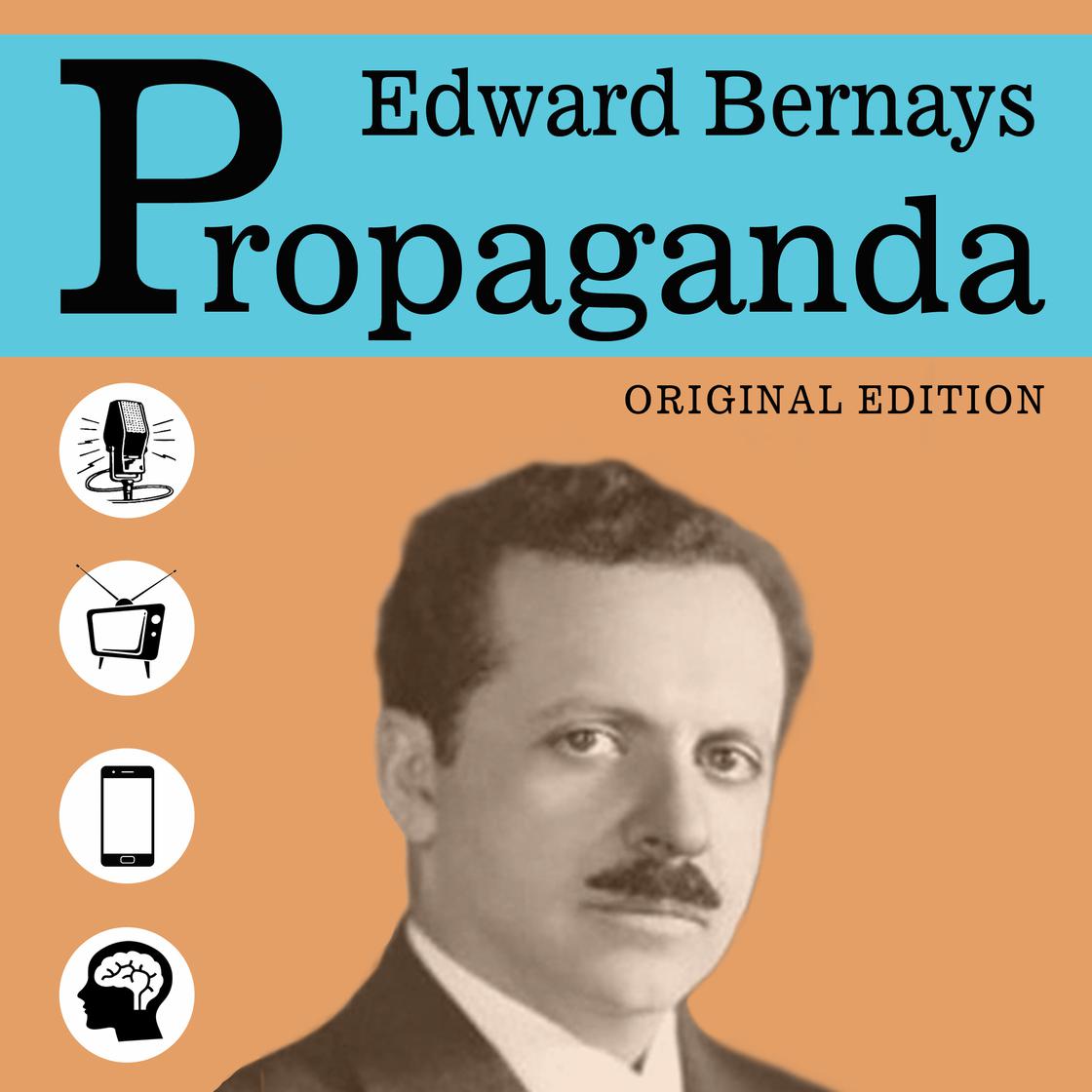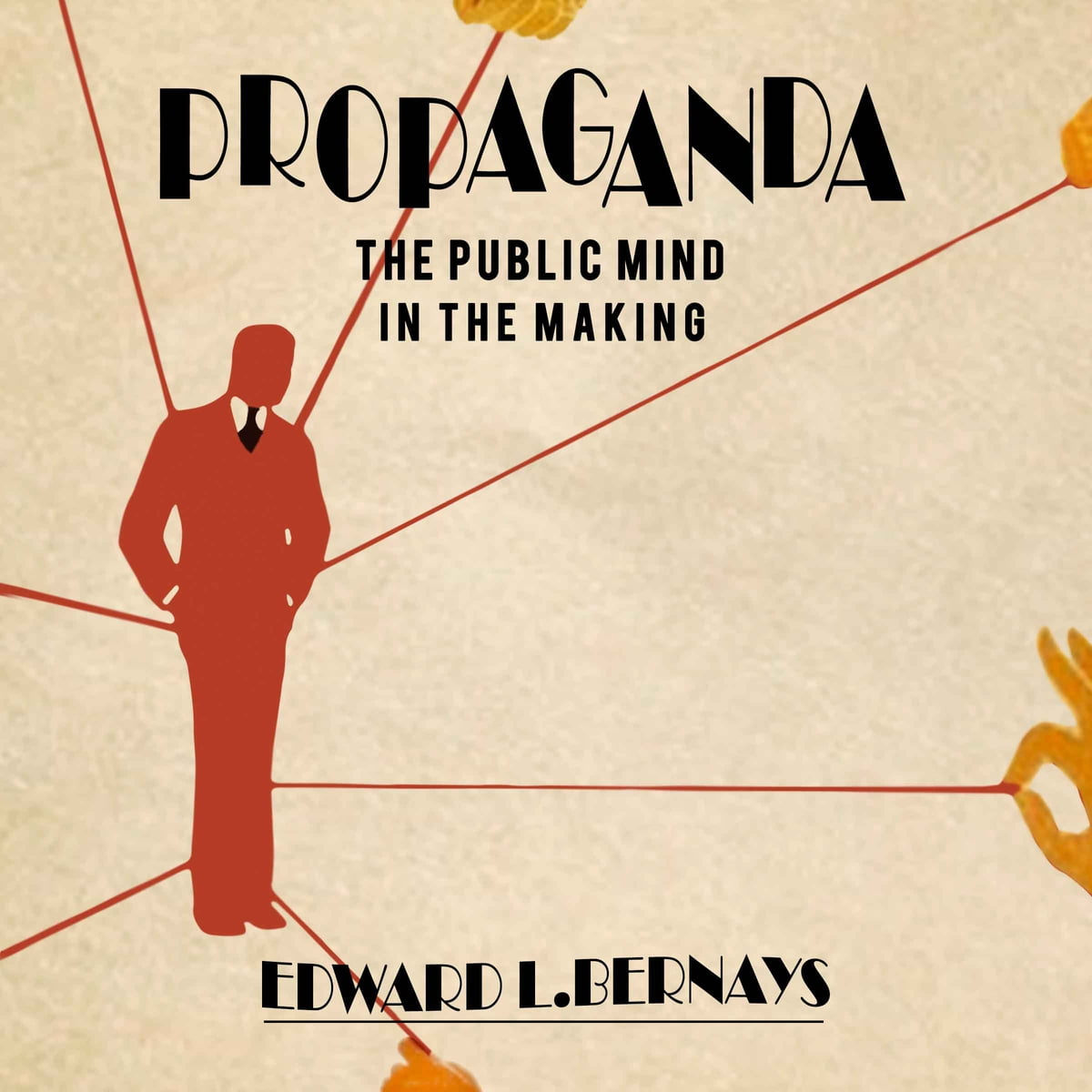Edward Bernays’ “Propaganda” audiobook reveals the manipulation of public opinion and its impact on society. It highlights the strategic use of propaganda by influential figures.
Edward Bernays’ “Propaganda” serves as a cornerstone in understanding modern public relations and media influence. Bernays, often dubbed the “father of public relations,” explores how propaganda shapes societal norms and opinions. His work underscores the power of strategic communication in molding public perception.
The audiobook delves into the ethical and practical implications of using propaganda. It offers a historical perspective on the evolution of media influence. Listeners gain insights into the methods used by governments and corporations to sway public opinion. This audiobook is essential for anyone interested in media studies, public relations, or social psychology.
The Genesis Of Propaganda
Edward Bernays was born in 1891. He was a nephew of Sigmund Freud. Bernays studied at Cornell University. He initially worked in journalism. Later, he moved into public relations. Bernays used psychology in his work. He believed people could be influenced easily. His ideas shaped modern advertising. Bernays is often called the father of public relations.
Bernays wrote a book called “Propaganda” in 1928. He explained how public opinion can be shaped. He used examples from his work. Bernays showed how to use media to influence people. He created campaigns for big companies. His work changed how businesses communicate. Public relations became a new field. Bernays’ ideas are still used today.

Core Concepts Of Propaganda
Edward Bernays believed that public opinion could be shaped. He used psychological techniques to influence people’s thoughts. This process involves understanding human emotions.
Bernays used tools like media and advertising. These tools help control what people see and hear. He targeted people’s fears and desires. This made them easier to persuade.
Repetition is another key tactic. Repeating ideas makes them seem true. Bernays knew that familiar ideas are accepted more easily. This creates a lasting impact on public opinion.
Historical Case Studies
Discover the influential work of Edward Bernays through the Propaganda Audiobook. Explore strategies that shaped public opinion and modern marketing techniques. Engage with historical insights on media manipulation and its impact on society.
The Torches Of Freedom
Edward Bernays changed how women smoked. He called it the Torches of Freedom. Women were seen smoking in public. This was not common before. Bernays linked smoking to women’s rights. This made smoking a sign of independence. Many women began smoking. The campaign was very successful.
Influencing The Bacon Breakfast
Edward Bernays also changed breakfast habits. He promoted bacon and eggs. He asked doctors to support a hearty breakfast. Many doctors agreed. They said bacon and eggs are good for health. This led to more people eating bacon for breakfast. The campaign helped the meat industry a lot.
Propaganda In Modern Media
Edward Bernays changed how we see media. He used newspapers to shape opinions. Today, social media plays a big role. Information spreads fast through tweets and posts. People share and like content quickly. This can influence public views in minutes. The power of media has grown. It now reaches millions of people instantly. This makes social media a key tool in propaganda.
Many companies use social media campaigns. They create hashtags to promote ideas. These campaigns can boost brand awareness. They can also shape public opinion. Successful campaigns often go viral. This means they get shared a lot. Companies spend millions on these campaigns. They aim to reach target audiences effectively. Data from these campaigns help in future strategies. Social media has changed the way propaganda works.
Ethical Considerations
Edward Bernays’ “Propaganda” audiobook delves into ethical considerations of manipulating public opinion. It challenges listeners to ponder the morality of influence.
The Morality Of Influence
Edward Bernays used propaganda to influence public opinion. Some people think this is unethical. They believe it can manipulate minds. Others argue it helps spread important messages. The morality of influence depends on the intentions behind it. Using propaganda for good causes can be seen as positive. Misleading people for personal gain is wrong. Understanding the impact of propaganda is key.
Regulating Propaganda
Regulations can help control propaganda. Governments and organizations can create rules. These rules ensure honesty and transparency. Media literacy education is also important. It helps people recognize propaganda. Citizens should learn to question what they see. Regulation can protect public interest. It can prevent abuse of propaganda. Balancing freedom of speech and regulation is crucial.

Bernays’ Legacy And Influence
Edward Bernays’ legacy in shaping public opinion is profound, as explored in the “Propaganda” audiobook. This influential work details his pioneering techniques in public relations and mass persuasion.
Impact On Advertising
Edward Bernays is known as the father of modern advertising. His techniques changed how ads are made. He used psychology to understand what people want. This made ads more effective. Companies started to sell more products. Bernays’ work still influences today’s ads. People buy things they don’t need because of his ideas. His methods made ads a powerful tool. Advertisers use these techniques to create brand loyalty.
Influence On Political Campaigns
Bernays also impacted political campaigns. He used his skills to help politicians win. His strategies made voters feel connected to candidates. This changed how elections are run. Politicians use similar methods today. They create images that people trust and like. Bernays taught them how to shape public opinion. His influence can be seen in every modern campaign. Campaigns now rely on emotional appeals and strong images.
Critiques And Counterarguments
Many scholars study Edward Bernays’ work. They find both good and bad points. Some praise his innovative ideas. Others see his work as manipulative. Bernays’ ideas are still discussed in many classrooms. His book “Propaganda” is a common subject in media studies. Many academics believe his ideas shaped modern advertising.
The public’s view of Bernays has changed. At first, many saw him as a genius. Later, others called his work controversial. People still talk about his influence today. His methods are both used and criticized. Many believe his ideas still affect marketing and public relations.
Applying Bernays’ Principles Today
Edward Bernays’ principles are still powerful in marketing today. His idea of creating desire instead of need works wonders. Brands use social proof to make products seem popular. This makes people want to buy them. Celebrities and influencers play big roles in these strategies. Ads show them using the products, making people want to copy them. Emotional appeal is another key tactic. Ads make people feel happy, sad, or excited. These feelings push them to buy things. Bernays’ ideas on targeted messaging are also crucial. Brands send specific messages to different groups. This makes the ads more effective.
Bernays’ ideas have shaped modern political strategies. Politicians use emotional appeal to win votes. They create fear or hope to influence people. Media manipulation is another tactic. Politicians control what news people see. This shapes public opinion. Repetition is also important. Politicians repeat simple messages many times. This makes people remember them. Social proof works in politics too. Seeing others support a candidate can make people join in. Bernays’ principles help politicians gain and keep power.

Conclusion
Edward Bernays’ “Propaganda” audiobook offers invaluable insights into the power of media and public influence. This classic work remains relevant, shedding light on modern marketing and communication strategies. Dive into this essential listen to understand the roots of media manipulation.
Enhance your knowledge and awareness today by exploring Bernays’ influential ideas.



